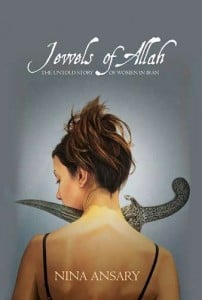Until the early 1990s, Egypt’s domination of the Arab film and television industry had won it the title of “Hollywood of the Arab East”. In significant ways, Egyptian drama productions, featured on television screens and in movie theatres, were believed to have been quite vital in promoting traditional Arab and Egyptian-specific lifestyles and experiences.
In the past two decades, however, Egypt’s audio-visual fortunes were being markedly diminished by the rise of regional television production centers, mainly in Syria and the Gulf region. In these two areas, a convergence of generous business investments, progressive attitudes, and creative talent has revolutionized television production in the Arab world, giving rise to more visually attractive and socially-daring works in issues relating to Arab women.

And one of those productions recently featured on the Saudi-owned MBC 4 is “The University,” a soap opera that dramatically chronicles the lives of six students in Cairo as they go through agony, happiness, anger, and frustration. A key feature of this drama work is its collaborative production and new stardom that derives from emerging talents with little affinity to traditional television drama. More importantly, I believe “The University” is serving as a platform for promoting a more open and progressive image of Arab women in modern society. I see this latter facet of the soap opera marking a successful and promising pattern of production that holds a good promise for the region’s television drama industry.
In its basic configuration, “The University” tackles issues bearing on youth life, their needs, aspirations, and worries, in ways unfamiliar in previous drama traditions. The audience follow the lives of three young men: Ismael, Yousef, and Yasser; and three young women: Malak, Samar, and Rima. We explore a small community that for most of us is interesting and we come in touch with the students’ failures and achievements.
Ismael is a technological maniac who has not yet found real love, apparently doomed to spend most of his life looking for it. Rima is a Lebanese girl, the daughter of a famous cartoonist who finds herself entrapped in the tragedy of her father’s political imbroglio. Yousef is a drug addict who tries to find his way out of this dilemma and Malak is the one who helps him out of his problem, while also seeking and winning the presidency of the student union. Yasser, a Saudi soccer player, has some goals to achieve in the field and in his personal life. Samar, his sister, is a talented writer who encounters a number of frustrations during her university years, but manages to survive them.
When I first watched the promo of “The University”, I thought it was one of those television shows that thrive on superficiality and sensationalism to generate more advertising dollars. But after watching 15 episodes of the soap opera, I had a totally different opinion. “The University” takes a daring approach, touching on issues traditionally seen as taboos in Arab society, such as homosexuality, drug addiction, Christian-Muslim relations, teenage pregnancy, freedom of speech, sexual harassment, the hijab, and many more.
What I found rather encouraging were the roles played by the three main females. For example, I was heartened to see Malak competing for the student president and winning it at the end, something the Arab world might not be presently prepared to accommodate, but will definitely have one day. Rima is another good example of a strong woman, who fights for unveiling the truth, and is a good friend to almost everyone in her university.
I was attracted to one scene in the soap opera that summarizes all what it has to say about women. When Malak was talking to a number of students about her nomination, one student approaches her and says: “You are a girl and a freshman, how do you think you will make the change we are looking for?” Malak answers by saying: “We shall not forget great women such as Dorya Chafic, Leila Ahmad, and Huda Sharawi. Arab women have progressed in their own societies. We are in the 21st century, and I think it is a shame to still think this way.”
“The University” also touches on the lives of Saudi women, represented by Samar. Though she still fears doing certain things because of traditional paternalistic practices in Saudi society, she still gives a good example of how Saudi women are building a strong image for themselves beyond the border of their country.
While the picture of former Egyptian President Hosni Mubarak appeared in the background of some scenes, the soap opera does pull the trigger for a drama production revolution that should be even more thunderous than the current Arab revolutions. By putting forward positive images of Arab women in modern society, “The University” helps to change the television normality of men starring at the forefront of drama productions while women stay in the back. Malak, Rima, and Samar are all great media role models.












